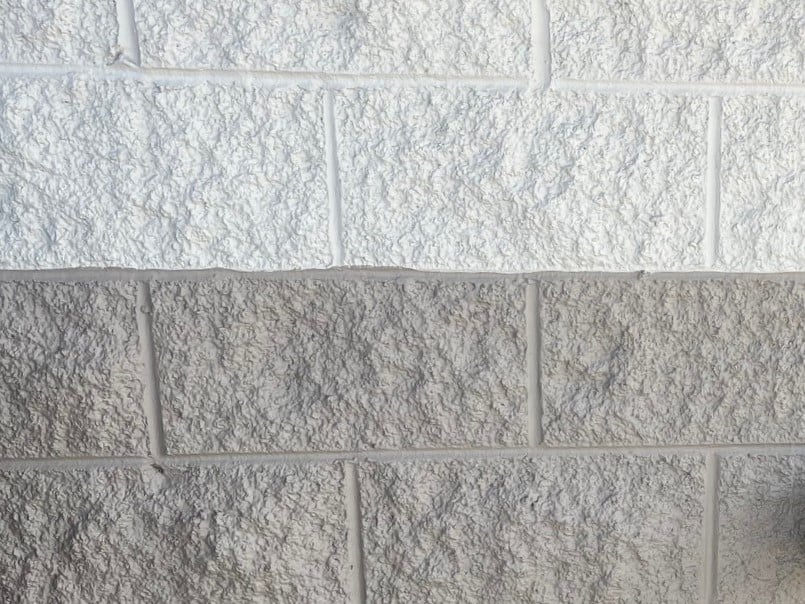
Houses are complex. Structural elements, plumbing, and electrical just scratch the surface. Homes also have to be insulated. If you have concrete walls in your basement, you may be wondering if those should be insulated. Will the cold in your house stop if you insulate your basement walls?
South Central Services has insulated hundreds of new and existing homes with spray foam. Basements need some amount of insulation to be up to code. However, the type of insulation and where you put it depends on how you’ll use your basement.
By the end of this article, you will understand:
- Why basements need some form of insulation
- When basement walls should be insulated
- How to insulate concrete basement walls
Don't have time to read right now? Check out everything you need to know at a glance.
Why Do Basements Need Insulation?
Your basement is part of your thermal envelope, which requires high-performing insulation. The thermal envelope is like the outline of a house. You can also think of it as the barrier between the home and the outside world.
Your basement walls are below the ground and sitting side-by-side with dirt. This means a lot of temperature change and moisture can transition between your basement and the ground. An appropriate insulation product can help mitigate the temperature and moisture differences between your basement and the ground outside.
Basements also need insulation to meet building codes. If your basement does not have insulation, it is technically not up to code. You’re probably also experiencing problems like cold floors and drafts.
When Is Insulation Necessary For Concrete Basement Walls?
If basements need some form of insulation, does it have to be wall insulation? Not necessarily. There are situations where concrete basement walls should be insulated, but those situations vary from home to home and depend on how you intend to use your basement.
Basements Need Wall Or Ceiling Insulation.
Two critical areas of the basement, the walls or the ceiling, can be insulated to meet building codes. You do not need to insulate both the walls and the basement ceiling. Just pick one.
Which product is best will depend on the area you are insulating and the use of your basement. Additionally, the options for basement ceiling insulation are more extensive since your basement ceiling is technically an above-grade space.
If Your Basement Ceiling Is Insulated, You Don’t Need Wall Insulation.
Two scenarios lead to basement ceiling insulation.
- You finished your basement but want more soundproofing between the basement and living space.
- You aren’t finishing your basement and need a thermal barrier between your basement and living space.
If you aren’t planning on finishing your basement, you don’t have to insulate the concrete walls. Instead, you can insulate the basement ceiling with a high-performance product.
If Your Basement Ceiling Isn’t Insulated, You Need Wall Insulation.
There are also two scenarios where you should insulate your basement walls.
- You want to finish your basement.
- You don’t want to finish your basement.
How the concrete walls in your basement should be insulated depends on why you need wall insulation.
How To Insulate Concrete Basement Walls
If you aren’t planning on finishing your basement, insulating the concrete walls in your basement is straightforward.
We recommend insulating with closed cell spray foam against the concrete walls. Closed cell is spray-applied, creating a seamless application. Spray foam also creates an airtight seal, preventing air from exchanging between the concrete and the basement.

Another popular method of insulating is faced fiberglass blankets. This is less expensive than spray foam insulation, and can also be completed as a DIY. While fiberglass is less effective than spray foam, no problems should arise unless air gets between the concrete and the blanket. Since fiberglass cannot create an airtight seal, there is a risk of condensation when using a fiberglass blanket.
If you want to finish your basement, insulating the concrete walls is more complex.
A finished basement needs drywall, and drywall needs something to attach to. In a finished basement, a wood-frame is built in front of the concrete wall. Rather than being placed flush against the existing wall, there is an inch gap between the wood-frame and the concrete wall.

There are several options to insulate this wood-frame wall. A popular option is fiberglass batt insulation in the wood-frame. Other homeowners opt for the fiberglass blankets applied between the wood-frame and the concrete. We recommend closed cell spray foam insulation on the wood-frame. Unlike fiberglass, spray foam can create a seamless application and an airtight seal, stopping condensation risk.
The Bottom Line About Insulating Your Concrete Basement Walls
The concrete walls in your basement may need insulation. If there is no insulation in your basement, insulating the walls is one option to make your home more comfortable and up-to-code.
If you already have effective insulation in your basement ceiling, you do not need to insulate your basement walls. However, you may consider having your basement band boards or rim joists sprayed with closed cell spray foam. Rim joists make up a small part of your basement but deal with a significant amount of air infiltration.
Now that you understand when basement walls need insulation, your next step is to:
- Compare options for basement ceiling insulation
- Learn the benefits of insulating basement rim joists with spray foam
- Discover why South Central Services is often chosen for basement insulation
Disclaimer: While we strive to publish information accurate to building science, local building codes and standards supersede our recommendations.
Kilian has co-owned and operated South Central Services for 8 years. He is passionate about community involvement. In his spare time, he enjoys being with his family, playing ice hockey, and going fishing with friends.
Topics:


